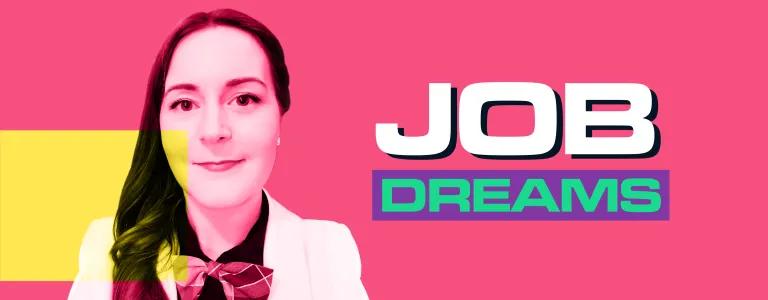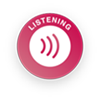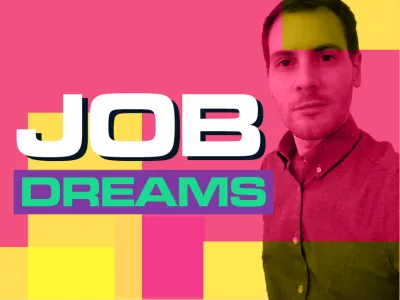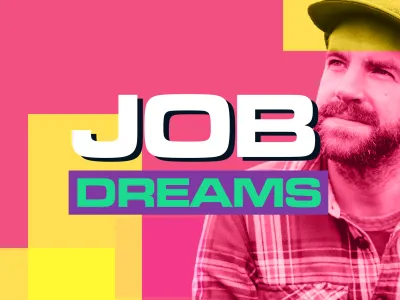
Job Dreams: Senior Systems Engineering Consultant
Include this article in your Skills Builder Journal. It could help you develop... ![]()

As part of our Job Dreams series, we speak to professionals from different careers and share their advice with you. Last month, we learned what it's like to be a Communications Director. This month, we met Charlie, who told us all about what it’s like to develop different technologies from aircraft landing gear to submarines!

What do you do?
I am a Senior Systems Engineering Consultant at Optima Systems Consultancy, working in the Defence, Aerospace and Nuclear industries. We use our skills in problem solving, systems thinking, engineering, business and project management to help our clients who are working on large and complex projects. My role is different for each project I help with, depending on what our customer needs. For example, I am working with my current customer to help develop their requirements for a future fighter aircraft. On a previous project I provided technical oversight of equipment testing & qualification plans for armoured vehicle systems.
Outside of my day job, I volunteer as a STEM (Science, Technology, Engineering and Mathematics) ambassador to help young people understand the value and importance of STEM subjects in their everyday lives and to inspire them to consider careers in STEM-related fields.
Can you tell us what your day-to-day is like?
Most of the time I work onsite with my customers as part of their team. I work alongside them so that I can better understand the issues that they deal with and build good working relationships with the team. Systems Engineering is all about breaking big complex problems (or systems) down into smaller more manageable ones. It’s also about understanding the interrelationships between all these smaller parts and how they fit into the big picture. So, when I first start a role, I spend a lot of time speaking to lots of different stakeholders and technical experts so that I can get their insights on the problem at hand and understand all aspects of the project. It is important that I understand the big picture. For example, you can’t design an aeroplane without thinking about the passengers, runways, airports, operating environment, politics, luggage and refuelling systems, how it’s built and maintained, and so on. Often my job is to make sure that all of these things are considered so that the final design works in the real world.
What do you love most about your job?
I love the variety! Each project I work on allows me to meet new people and learn something new. I have had the opportunity to work in different industries and play a part in developing lots of different technologies like aircraft landing gear, armoured vehicles, submarines and even mechanical arms to go inside nuclear fusion reactors. It’s not just the technology that’s different; on each project I get to work with different teams in different companies with their own individual cultures and ways of working. Sometimes it means a fair bit of travelling as well: I have worked on a naval base in Scotland and an aircraft production line in France.
What do you find most challenging?
I have to be quick to react to change and I have to learn things fast. I didn’t know anything about submarines, nuclear fusion reactors or armoured vehicles before I started working on those projects but I had to quickly gain enough technical knowledge and awareness to be able to do my job. In addition, each company I work for has slightly different processes, organisational structure, language and terminology that I have to adapt to. Even doing my STEM ambassador role, you never know what the students are going to ask or what out-of-the-box ideas they may come up with and you just have to roll with it!

What did you see yourself doing when you were a kid?
Well, when I was little, I wanted to be Batman! Partly for the cape but mainly for the fast cars and gadgets. He was also one of the only superheroes that didn’t have any superpowers, so I wanted to be like him and develop my skills to help others. Later, I joined air cadets and wanted to be a Red Arrows pilot but I’m not actually that good at flying planes. I never really had a set job or goal in mind, I just knew I wanted to help people and try to make things better. I was always good at taking things apart and fixing them or understanding how they worked. I am great at jigsaw puzzles, Lego and assembling Ikea furniture and I think that’s how my interest in engineering started.
What challenges did you face in reaching where you are today?
One of my biggest challenges was my own self-image and lack of confidence. From a young age I was quite introverted and I felt I was lacking good social skills. This became a sort of self-fulfilling prophecy - I was labelled shy and awkward and because everyone accepted that I was like that, I didn’t see a need to try to fix it or act differently. However, with my job I need to be able to communicate well with others and talk to large crowds so I couldn’t let my shyness and fear of public speaking get in the way. It took a lot of time and practice but I’m now able to present confidently to large groups of people, whether it is a boardroom full of senior military officers or an assembly hall full of kids (who are honestly scarier). Something that really helped me overcome this was realising that no matter who I speak to, they are all just people. If I can try to understand their point of view, worries and motivations they aren’t so scary even if they disagree with me. I did eventually realise that I am a bit of an extrovert! I love working with teams of people and I work best around others who I can discuss ideas with.
Another side effect of my shyness and lack of confidence was that I was bad at realising and celebrating my own capabilities and successes. As such, I was not very good at speaking up for myself and pushing for more responsibilities or opportunities. Unfortunately, it is often the people that do speak up and talk about these things that are remembered by senior managers and therefore get promoted quicker and given more opportunities. I still feel silly “bragging” about my skills and experience in a CV or in an interview, but it is important to recognise and celebrate the things that I have worked hard to achieve!
If you weren’t working in this field, what do you think you’d be?
When I first looked at going to university, I was really stuck between going to art school or studying engineering. I still do some painting in my spare time, and I like to think I would do something with my creative skills if I wasn’t in engineering.
It might not sound obvious but there is a strong link between art and design and STEM roles. Having a creative mind helps you to look at and approach problems in different ways and come up with innovative solutions. An example I like to use is Leonardo DaVinci who created some incredible art but also was fascinated by science, anatomy and designed amazing mechanical inventions. This link has led to a lot of people looking at expanding STEM to STEAM (adding an A for Art) and including more artistic or creative activities within traditional STEM challenges to help encourage and foster creative thinking. I studied Product Design Engineering at university which I found was a great mix between creative design and mechanical engineering.
Where do you see yourself going next?
I don’t have big dreams of running my own company or anything, I’d like to continue gaining experience in different industries, exploring new technologies and learning to apply my skills in new ways to help customers and make a difference. I would like to try applying my skill set to a completely new area like alternate energy.

What do you know now that you wish you’d known when you first left school?
Everyone fails or makes mistakes sometimes and it’s okay to do so. Don’t let the fear of failure stop you from trying something new. The important thing to remember is to ask questions if you don’t fully understand something and if you do fail, make the most of the experience! Learn from it, adapt, and make improvements.
A lot of people don’t want to talk about their failures or are afraid to ask for help because they are afraid of being judged poorly but it’s a good thing to share these things with others so that you can show how you have learned from it and help them to avoid the same mistakes.
What advice would you give to someone interested in joining your industry?
I give this advice to many students when I’m doing my STEM engagements: Develop your “soft” skills! These are just as important as any qualification or book learning and will help you stand out from the crowd. Creative thinking, communication, time management, problem solving, teamwork and leadership skills are all crucial to succeeding in any job, not just in engineering. We try to focus on these when planning our STEM activities. One way to develop these is to get as much practical experience as you can whether it is taking part in a team challenge through school, getting a summer job in a cafe, or volunteering for a charity. The more “real world” experience you can get, the better.
What’s the best piece of professional advice you’ve been given?
Never stop learning! Even if you have done the same job for several years there’s always new skills to learn, new ways to do things, and areas to improve. Often when people think they are an expert in something, they think there’s nothing left to learn but that attitude can lead to boredom and hold them back from further progression. Some key tips are: always ask questions (don’t assume), take time to learn about things that others do (even if they work in a different area), ask yourself how you could make things better, and don’t be afraid to take on criticism or listen to other people’s ideas.
What quote do you live by?
“Grow older, grow wiser but never grow up!” This doesn’t mean avoiding responsibility or anything like that. It’s more about never losing that enjoyment of discovering new things and doing something silly and fun every now and then. Sometimes life can be stressful or boring but having a laugh with friends can really help. Find ways to make work fun!




